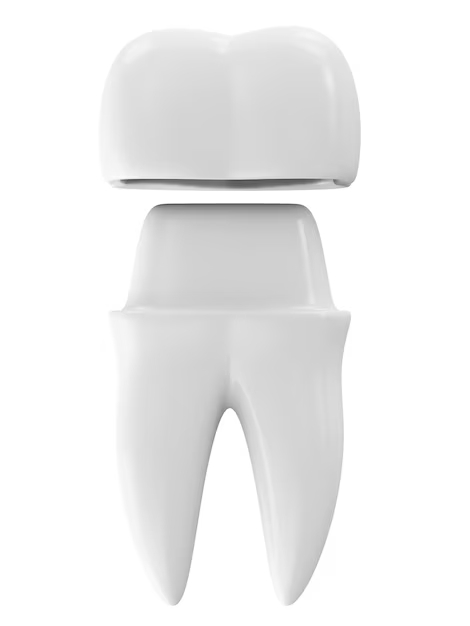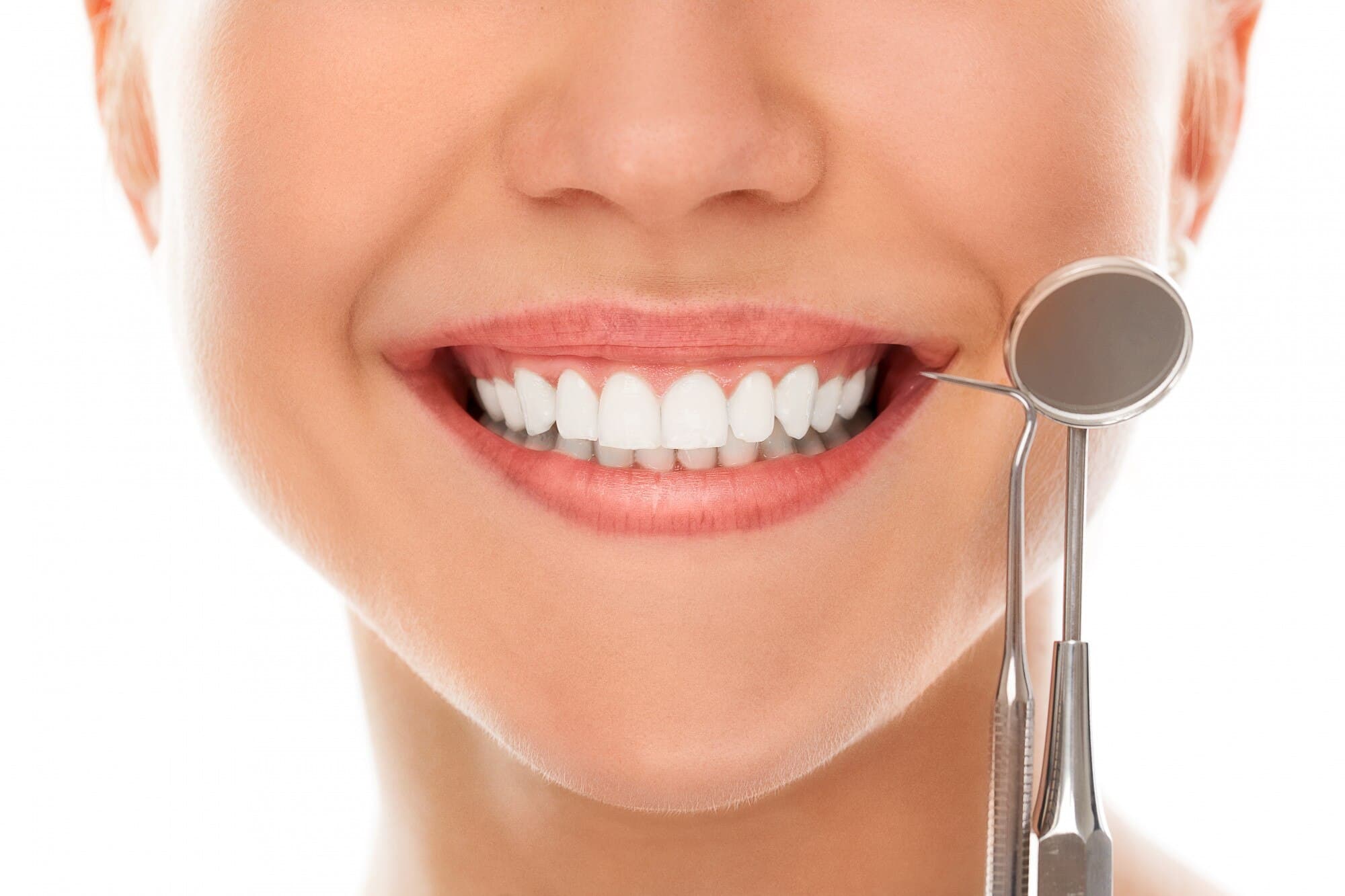What are dental crowns?
A dental crown is a tooth-shaped "cap" placed over a damaged, decayed, or weakened tooth to restore its shape, size, strength, and appearance. Crowns are also used to cover dental implants or hold dental bridges in place. They provide protection and enhance both the functionality and aesthetic of the tooth.


Where are dental crowns used?
- Protecting a weak tooth from breaking or holding together parts of a cracked tooth.
- Restoring a severely worn-down or broken tooth.
- Covering and supporting a tooth with a large filling when there isn’t much tooth structure left.
- Securing a dental bridge in place.
- Covering a misshapen or discolored tooth for cosmetic reasons.
- Placing over a dental implant as the final restoration.
What types of dental crowns are available?
- Metal Crowns: Durable and ideal for molars, made from gold or metal alloys.
- Porcelain-Fused-to-Metal (PFM) Crowns: Combines metal strength with a natural porcelain appearance.
- All-Ceramic/All-Porcelain Crowns: Best for natural aesthetics, suitable for front teeth.
- Zirconia Crowns: Extremely strong and fracture-resistant, ideal for visible teeth.
- Composite Resin Crowns: A budget-friendly option, less durable.
- E-max Crowns (Lithium Disilicate): Superior aesthetics and durability, suitable for all teeth.
How long does the treatment take?
The dental crown treatment usually requires two visits to the dentist:
- First Visit: The dentist prepares the tooth, takes an impression, and places a temporary crown.
- Second Visit: After 1–2 weeks, the permanent crown is placed and cemented.
In some cases, same-day crowns using CAD/CAM technology allow the entire process to be completed in one visit.
How long do dental crowns last?
With proper care, dental crowns can last between 10 and 15 years or longer. Several factors influence their lifespan:
- Material Used: Metal crowns are more durable compared to porcelain or composite crowns.
- Oral Hygiene: Regular brushing, flossing, and dental check-ups prevent decay and gum disease that can compromise the crown.
- Lifestyle Choices: Avoiding habits like teeth grinding, nail-biting, or using teeth to open packages extends the crown’s lifespan.
- Placement: Crowns on molars experience more wear and tear than those on front teeth.
What are the benefits of dental crowns?
Dental crowns offer several advantages beyond repairing damaged teeth:
- Functionality: Restores your ability to chew and speak naturally.
- Protection: Covers and protects damaged teeth from further harm.
- Aesthetics: Improves the appearance of discolored or misshapen teeth for a confident smile.
- Versatility: Suitable for a wide range of dental issues, from repairing teeth to acting as foundations for bridges or implants.
- Longevity: Provides a durable, long-term solution for tooth restoration.
Are dental crowns painful?
The dental crown procedure is generally painless due to the use of local anesthesia. However, you may experience:
- Sensitivity: Temporary sensitivity to hot or cold temperatures after the procedure.
- Post-Procedure Discomfort: Slight gum irritation or discomfort around the treated tooth, which typically subsides within a few days.
Over-the-counter pain relievers or desensitizing toothpaste can help alleviate discomfort. If pain persists, consult your dentist for adjustments.
How do I care for dental crowns?
Caring for dental crowns is straightforward, and maintaining oral hygiene is key:
- Brushing and Flossing: Brush twice a day with fluoride toothpaste and floss to remove plaque around the crown.
- Avoid Hard Foods: Chewing hard items like ice or hard candy can crack or damage the crown.
- Mouthguards: Use a mouthguard if you grind your teeth at night to protect the crown.
- Regular Dental Visits: Routine check-ups ensure that the crown and surrounding teeth remain healthy.
Can I whiten dental crowns?
Dental crowns are made from materials that do not respond to traditional whitening treatments. However:
- Matching Shades: If you whiten your natural teeth, your dentist may recommend replacing the crown to match the new shade.
- Prevent Staining: Avoid foods and drinks like coffee, tea, or red wine to maintain the crown’s color.
Are there any alternatives to crowns?
Depending on the condition of your tooth, alternatives may include:
- Onlays and Inlays: Partial restorations that fit into or onto the tooth, preserving more of its structure.
- Veneers: Thin porcelain shells for improving the appearance of front teeth, ideal for cosmetic cases.
- Dental Bonding: A cost-effective option for repairing minor chips or cracks.
- Fillings: Suitable for minor cavities or damage.
What should I expect after getting a dental crown?
After receiving a dental crown, you may notice:
- Adjustment Period: It may take a few days to get used to the crown, especially when chewing or speaking.
- Sensitivity: Temporary sensitivity to hot, cold, or pressure, which typically resolves within a week.
Regular follow-up appointments ensure the crown fits well and functions as intended.